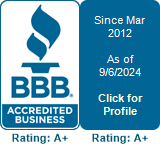The IRS begins Notice 87A with, "Information about your [year] federal income tax return - You need to make sure someone is your dependent". With Notice CP87A the IRS is questioning your ability to take someone as a dependent. Consequently, the benefits associated with dependents are at risk. These include the Earned Income Credit, the Child Tax Credit and the Head of Household Filing Status.
Various Notices
The IRS might notify you with Letter 5621.
Or, the IRS may send Notice CP87B to the dependent when the dependent claimed him or herself.
Notice CP87C is used when the dependent made too much money to qualify as your dependent. Notice CP87D is sent when you claimed someone who was married to someone else.
Reason for Notice CP87A
This conflict occurs with ex-spouses, grandparents, foster parents and other caregivers who claim the dependency exemption (and other benefits). The most likely cause for this letter is because someone else (i.e., ex-spouse, grandparent, foster parent etc.) took the exemption for the dependent on their return so the IRS has 2 returns claiming the same dependent as an exemption. If possible, find out if anyone else claimed the dependent.
Steps in Response to Notice CP87A
Investigate
If an ex-spouse claimed the dependent, then a battle might arise in any State Court where a support order was granted. It may be a violation of the Court Order. Please consult with a Family Law attorney in your area! An amended return may be recommended.
But, the IRS ignores State Court orders. In most cases, the exemption is given to whoever physically housed the dependent for the greater part of the year. (See Pub. 501, Pub. 504) This may be readily evident from the facts or it may become more complicated if 2 (or more) taxpayers claim to have supported the dependent. The level of proof necessary varies with the situation.
If you are entitled to the deduction (or the other taxpayer amends his/her return) then no response is necessary. But, the IRS might send you a Notice CP75 demanding a response. You have to research the facts and arrange your evidence just in case the IRS asks for it.
Take Action
This is not a bill and not an audit but will lead to a math adjustment based on your response or lack thereof. When you respond to the IRS be very careful what you say and what you send them. These will be used against you! The IRS will require proof of school records, medical records, home costs, child care & support, etc.
If You Default
If you do not respond in the exact manner required by the IRS, you will be denied the exemption for this year (Notice CP79) and all future years (Notice CP79B). Plus, the IRS will likely impose "negligent record-keeping" or "accuracy-related" penalties against you.
Self-Prepare
Fortunately, our website, Audit Defense Programs have specific instructions for how to handle IRS adjustments for Personal Exemptions and Credits as well as the various credits:
- Earned Income,
- Child Tax,
- Addt'l Child Tax, etc.
Or, you can always follow the Prep Steps for more information, forms & instructions & contact our law offices to set an appointment to review your specific case in detail!
Re-Certification
Even if you lose with the IRS, don't give up. You may pursue your case in Appeals or Tax Court. If you win, the IRS will send you a Notice CP74, telling you that you are re-certified for the Earned Income Credit and you may freely claim the credit in future years. They may also send Notice CP76 stating that you will receive your refund. If you have a good case, don't give up!
Or, the IRS may send you Notice CP79 requiring you to complete Form 8862 the next time you file. (See Pub. 596)
Various Types of IRS Notice 87A:







